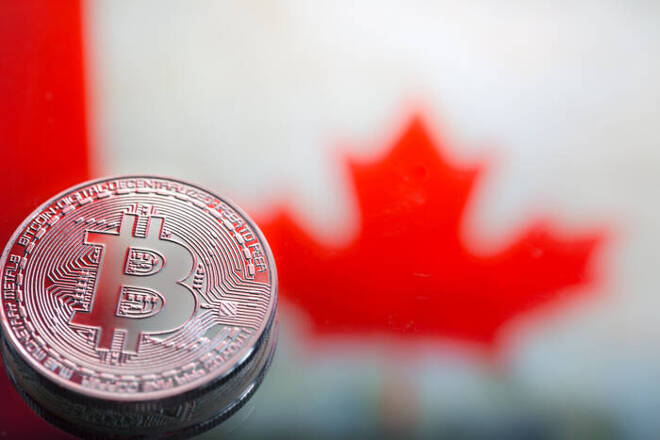Advertisement
Advertisement
An Ontario Regulator Reported Kraken and Coinbase CEO’s Comments
By:
Ontario Securities Commission sent to the Royal Canadian Mounted Police (RCMP) Brian Armstrong and Jesse Powell Twitter's comments of Canada's situation.
The situation in Canada is getting more attention from all around the world. Important people like Nayib Bukele, the President of El Salvador, gave his opinion since Canada invoked the Emergencies Act last week.
Earlier this month, Canada issued a Covid-19 vaccine mandate for truck drivers. A few days later, truck drivers’ protests started raising funds through fundraising platforms such as GoFundMe and GiveSendGo.
First, GoFundMe banned the donations of the “Freedom Convoy Campaign,” and a few days later, the government froze all the truckers’ protest-related donations on the GiveSendGo platform. With these restrictions, more people made Bitcoin donations through Tallycoin.
A few days later, Chrystia Freeland, Canada’s Deputy Prime Minister, announced that the authorities were invoking the Emergencies Act. This allows them to freeze funds, including crypto wallets.
After this happened, the CEO of Kraken, Jesse Powell, and the CEO of Coinbase, Brian Armstrong, commented on Twitter about this situation.
On February 21, according to the Regina Leader-Post, a Canadian daily newspaper, both comments made by the crypto CEOs were flagged to the Royal Canadian Mounted Police (RCMP) “and relevant federal authorities.”
What Exactly Did Brian Armstrong and Jesse Powell Say?
After the Emergencies Act was invoked, Kraken’s CEO Jesse Powell tweeted about recommending sending crypto from self-custodial wallets.
"captured" being the key word. Crowdfunding platforms now regulated under the Canadian Terrorist Financing Act. Do you see where this is going? Please do not fund causes directly from custodial wallets. I'm sure freeze orders are coming. Withdraw to non-custodial before sending. https://t.co/OBDFbrUpBy
— Jesse Powell (@jespow) February 15, 2022
A few hours later, Coinbase’s CEO Brian Armstrong tweeted the following:
Concerning to see stuff like this happening in any country, especially such an economically free place like Canada.
Self-custodial wallets are important! ->https://t.co/ppIvaIcWWh https://t.co/nJw2EhyJhd
— Brian Armstrong – barmstrong.eth (@brian_armstrong) February 15, 2022
The OSC reported these comments because the CEOs were telling users what to do to avoid their accounts being frozen.
What Is a Self-Custodial Wallet?
A self-custodial wallet or also known as a cold wallet, is a wallet in which the user has total control of the funds, by having access to the private keys.
These wallets are offline, in comparison to non-custodial wallets, such as centralized exchanges, which are online. As you have the total control of your funds, it is very difficult for someone to hack or freeze your funds. But, you have to be careful, because if you lose your private keys, you may never see your funds again.
Some examples of self-custodial wallets are hardware wallets like Ledger and Trezor.
The Importance of Self-Custodial Wallets
Three days later, after Jesse Powell’s tweet, someone asked him on Twitter if “it’s possible Kraken will be put in a position were told to freeze assets by police without judicial consent,” and he answered the following:
100% yes it has/will happen and 100% yes, we will be forced to comply. If you're worried about it, don't keep your funds with any centralized/regulated custodian. We cannot protect you. Get your coins/cash out and only trade p2p.
— Jesse Powell (@jespow) February 18, 2022
The crypto ecosystem has an important saying: “Not your keys, not your coins.”
On centralized exchanges, you don’t own your private keys. Meanwhile, you have access to your own private keys in a cold wallet or a self-custodial wallet.
A self-custodial wallet is very important because it gives you more privacy and control of your funds, especially in a situation like Canada right now.
About the Author
Ricardo Rivasauthor
Ricardo is a Venezuelan engineer and technology enthusiast, who discovered the world of blockchain and cryptocurrencies in 2016. Since that time onwards, he has been working as a blockchain and crypto freelancer consultant, he also worked in the crypto mining industry, and acquired knowledge in different blockchains.
Advertisement
